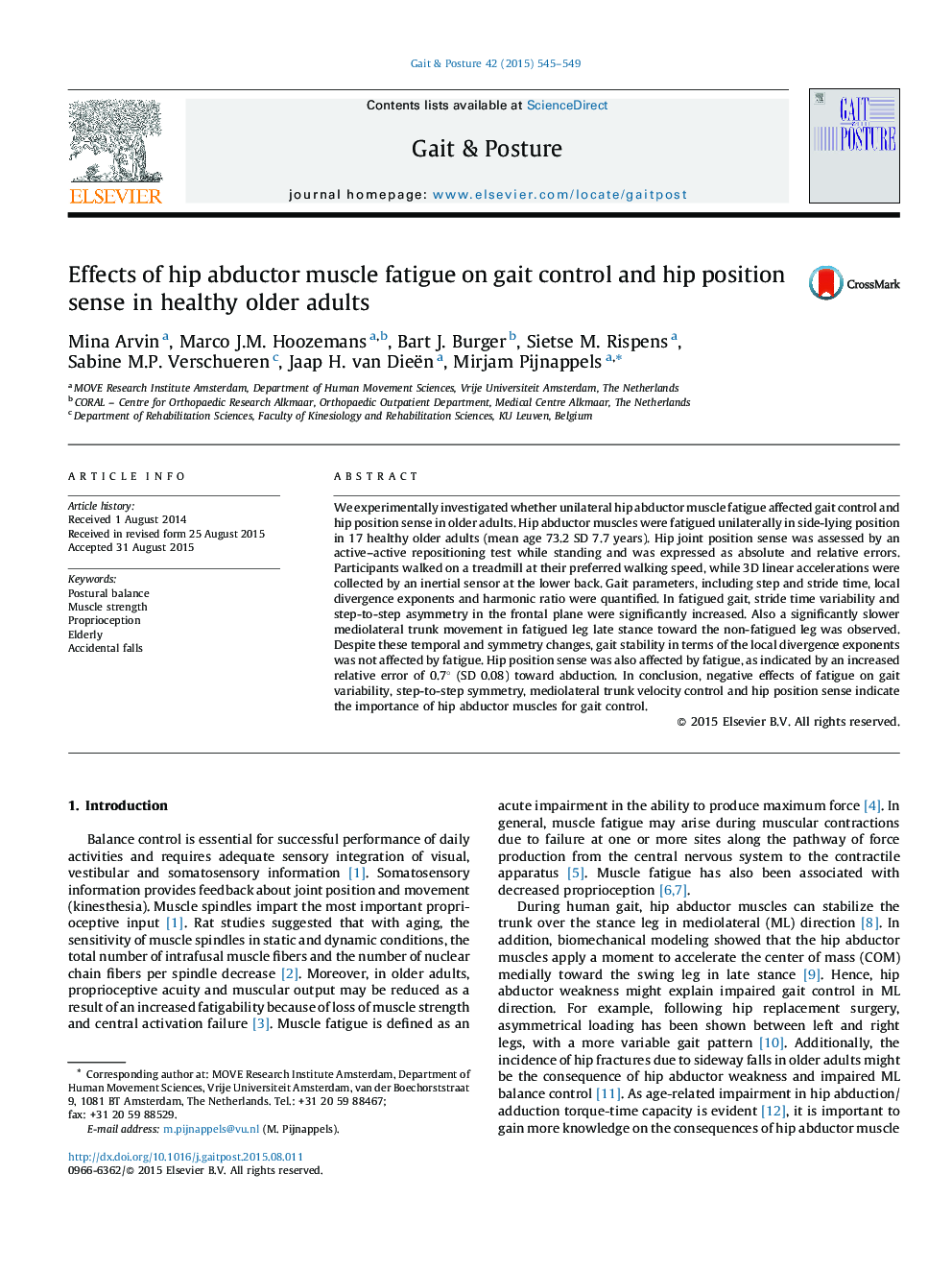| Article ID | Journal | Published Year | Pages | File Type |
|---|---|---|---|---|
| 4055751 | Gait & Posture | 2015 | 5 Pages |
•Aging and muscle fatigue can affect balance control during walking.•Hip abductor muscles were fatigued unilaterally in healthy older adults.•Fatigue increased relative errors in hip position sense toward abduction.•Stride time variability and gait asymmetry increased during fatigued walking.•These results indicate the importance of hip abductor muscles for control of gait.
We experimentally investigated whether unilateral hip abductor muscle fatigue affected gait control and hip position sense in older adults. Hip abductor muscles were fatigued unilaterally in side-lying position in 17 healthy older adults (mean age 73.2 SD 7.7 years). Hip joint position sense was assessed by an active–active repositioning test while standing and was expressed as absolute and relative errors. Participants walked on a treadmill at their preferred walking speed, while 3D linear accelerations were collected by an inertial sensor at the lower back. Gait parameters, including step and stride time, local divergence exponents and harmonic ratio were quantified. In fatigued gait, stride time variability and step-to-step asymmetry in the frontal plane were significantly increased. Also a significantly slower mediolateral trunk movement in fatigued leg late stance toward the non-fatigued leg was observed. Despite these temporal and symmetry changes, gait stability in terms of the local divergence exponents was not affected by fatigue. Hip position sense was also affected by fatigue, as indicated by an increased relative error of 0.7° (SD 0.08) toward abduction. In conclusion, negative effects of fatigue on gait variability, step-to-step symmetry, mediolateral trunk velocity control and hip position sense indicate the importance of hip abductor muscles for gait control.
